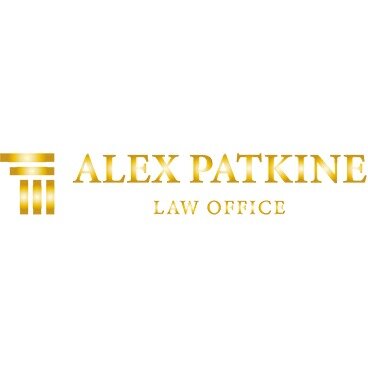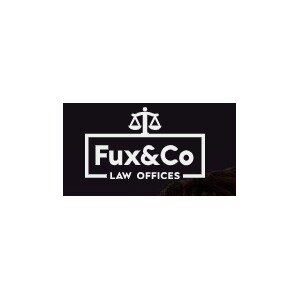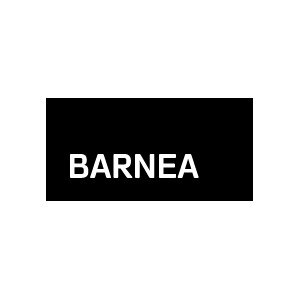Best Water Law Lawyers in Tel Aviv
Share your needs with us, get contacted by law firms.
Free. Takes 2 min.
List of the best lawyers in Tel Aviv, Israel
About Water Law in Tel Aviv, Israel
Water Law in Tel Aviv, Israel, governs the allocation, use, quality, and management of water resources within the city's jurisdiction. Water is a limited and valuable resource in Israel, and regulations ensure its sustainable usage and fair distribution among residents, businesses, agricultural entities, and municipal services. The legal framework covers issues such as water rights, infrastructure development, water quality standards, and dispute resolution. Given Tel Aviv's status as a major urban hub, local water law is closely linked to national regulations but has unique attributes shaped by the city's specific environmental and economic conditions.
Why You May Need a Lawyer
Legal matters related to water are often complex. Here are some common situations where you may require the help of a water law lawyer in Tel Aviv:
- Disputes over water rights or allocation between neighbors or businesses
- Issues regarding municipal water supply, quality or billing
- Regulatory compliance for businesses dealing with wastewater, pollution controls, or water extraction
- Land development projects requiring permits and compliance with environmental regulations
- Appealing administrative decisions by local water authorities
- Addressing damages caused by water contamination or infrastructure failures
- Dealing with fines or enforcement actions by local or national regulators
Local Laws Overview
The regulation of water in Tel Aviv is based primarily on the Israeli Water Law of 1959, as well as various ordinances and municipal guidelines. Some key aspects include:
- All water sources are considered public property managed by the Israeli Water Authority
- Water allocation is based on government priorities: residential use, agriculture, industry, and nature preservation
- Tel Aviv Municipality enforces local rules concerning water use, maintenance of infrastructure, and billing
- Strict regulations govern wastewater treatment, pollution prevention, and environmental conservation
- Permits are needed for drilling wells, industrial extraction, or significant modifications to water systems
- Violations can lead to administrative penalties, fines, or even criminal prosecution
Frequently Asked Questions
What is the Israeli Water Law and how does it apply in Tel Aviv?
The Israeli Water Law is a national framework declaring water as public property, managed by the government to ensure sustainable and fair usage. In Tel Aviv, this law is enforced alongside municipal bylaws addressing local water needs and infrastructure.
Who is responsible for the supply of water in Tel Aviv?
The Tel Aviv Municipality and Israel’s national water company, Mekorot, manage water supply, maintenance, and infrastructure in the city. Oversight is provided by the Israeli Water Authority.
What should I do if I have a dispute with my neighbors regarding water usage?
It is advisable to attempt an amicable resolution first. If you cannot resolve the issue, consult a lawyer specializing in water law, who can negotiate on your behalf or initiate legal proceedings if necessary.
Can businesses in Tel Aviv use groundwater or drill wells?
Access to groundwater or drilling wells requires a specific government permit. Unauthorized drilling is illegal and can lead to severe penalties.
Are there legal limits on water consumption for residential or commercial properties?
Yes, the government sets quotas for different uses, especially in times of drought or shortages. Exceeding these limits can result in fines or reduced supply.
What are my rights if my tap water is polluted or unsafe?
You have the right to safe drinking water. If you experience pollution or contamination, promptly report it to the municipality and consult a lawyer to explore compensation options or enforcement actions.
How are water rates and bills regulated in Tel Aviv?
Water rates are set by the Israeli Water Authority in coordination with municipal bodies. Rates vary for household, business, and industrial users, and consumers are entitled to transparent billing and dispute resolution procedures.
What should a developer know about water permits in Tel Aviv?
Land development often requires water use permits, compliance with wastewater regulations, and environmental impact checks. Early legal consultation can help streamline approval processes.
How does Tel Aviv address water conservation?
The city promotes water conservation through public campaigns, tiered pricing schemes, and infrastructure investments in leak detection and efficient irrigation.
What legal recourse do I have if I am fined for water law violations?
You have the right to appeal administrative fines or penalties. Engaging a lawyer can help you navigate the appeals process or seek a reduction or cancellation of the fine.
Additional Resources
Here are some key resources and organizations relevant to water law in Tel Aviv:
- Israel Water Authority (Rashut HaMayim) - Policy, permits, and enforcement
- Mekorot (Israel National Water Company) - Water infrastructure and supply
- Tel Aviv-Yafo Municipality - Local bylaws, complaints, and service information
- Ministry of Environmental Protection - Environmental standards and enforcement
- Israeli Bar Association - List of qualified water law attorneys
Next Steps
If you face a water-related legal issue in Tel Aviv:
- Document the issue with as much detail as possible, including photographs, written communications, and official correspondence
- Contact the relevant municipality department or regulatory authority to report the problem or seek clarification
- Consult with a lawyer specializing in water law for an initial assessment of your case
- Prepare relevant documents and permits before any legal consultation
- If necessary, engage your lawyer to negotiate, file appeals, or represent you in court or before administrative bodies
Lawzana helps you find the best lawyers and law firms in Tel Aviv through a curated and pre-screened list of qualified legal professionals. Our platform offers rankings and detailed profiles of attorneys and law firms, allowing you to compare based on practice areas, including Water Law, experience, and client feedback.
Each profile includes a description of the firm's areas of practice, client reviews, team members and partners, year of establishment, spoken languages, office locations, contact information, social media presence, and any published articles or resources. Most firms on our platform speak English and are experienced in both local and international legal matters.
Get a quote from top-rated law firms in Tel Aviv, Israel — quickly, securely, and without unnecessary hassle.
Disclaimer:
The information provided on this page is for general informational purposes only and does not constitute legal advice. While we strive to ensure the accuracy and relevance of the content, legal information may change over time, and interpretations of the law can vary. You should always consult with a qualified legal professional for advice specific to your situation.
We disclaim all liability for actions taken or not taken based on the content of this page. If you believe any information is incorrect or outdated, please contact us, and we will review and update it where appropriate.

















